|
|
|
Editor's note
|
|
One of the questions researchers are grappling with as confirmed cases of COVID-19 continue to rise globally, is how the disease interacts with other infections. In South Africa, there's particular concern about the risk to those living with HIV and TB, and the impact that COVID-19 might have on their already vulnerable lungs. Emily Wong explains what we know about this issue, and what still needs to be understood.
Meanwhile, COVID-19 continues to have huge ripple effects on all aspects of life, all over the world. Events are being cancelled or postponed - and the Summer Olympics, which were set to start in Tokyo in July, are no exception. Jack Anderson argues that delaying the massive event was the right thing to do, and questions why the International Olympic Committee didn't make the decision sooner.
|
Ina Skosana
Health + Medicine Editor (Africa edition)
|

|
|
Top Stories
|
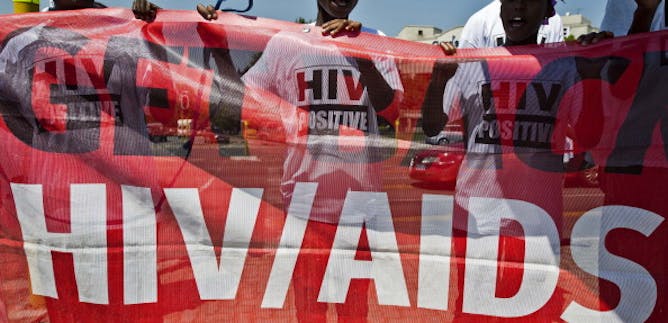
Doctors Without Borders supporters march in protest to the American Consulate in Johannesburg in 2012 lack of funding to fight HIV from foundations.
Photo by Foto24/Gallo Images/Getty Images
Emily Wong, University of KwaZulu-Natal
Very little is known about the relationship between COVID-19 and HIV and TB. What is known is that people's lungs are affected by all three.
|
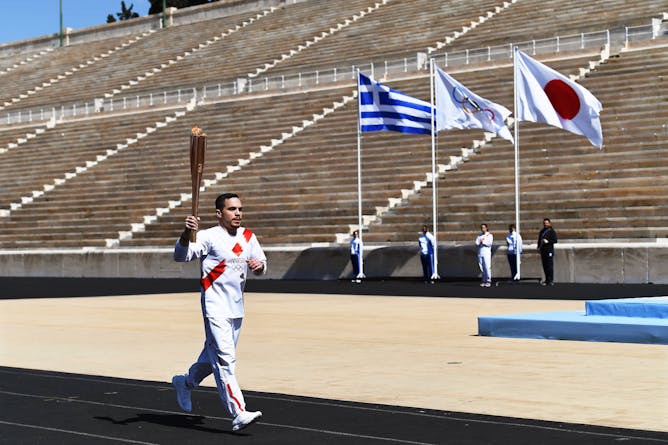
ARIS MESSINIS / POOL / EPA
Jack Anderson, University of Melbourne
Legally, the Tokyo organisers are protected from events that are out of their control. And it's unlikely broadcasters and sponsors would press legal claims during a global pandemic.
|
COVID-19
|
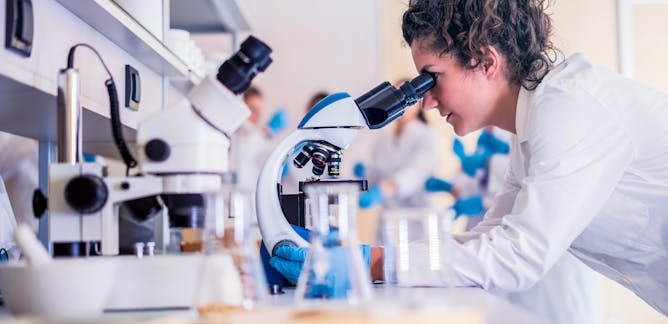
Paul Komesaroff, Monash University; Ian Kerridge, University of Sydney; Lyn Gilbert, University of Sydney
We urgently need a vaccine for COVID-19 but exposing humans to a vaccine candidate that hasn't undergone the usual safety assessments is risky.
| |
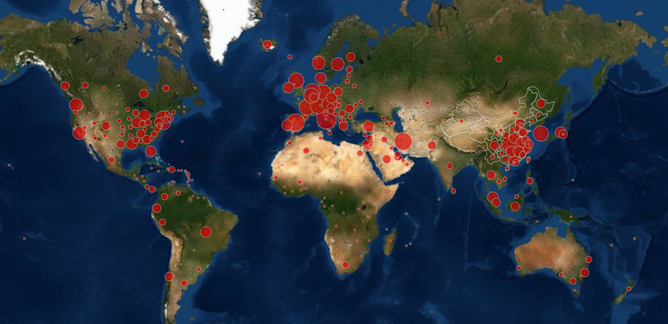
Jeremy Rossman, University of Kent
Modelling highlights the urgent need for strong interventions.
|

Jeremy Cohen, McMaster University
Why have conspiracy theories so easily circulated during the COVID-19 pandemic? What do these theories tell us about societies and what challenges do they present?
| |
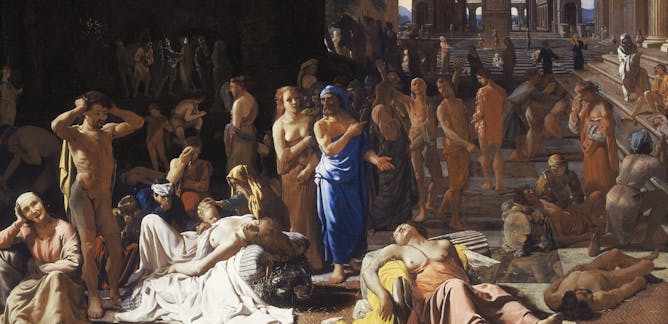
Meghan Henning, University of Dayton; Candida Moss, University of Birmingham
The Greeks treated their city-states like bodies. To protect them from disasters, it was the poor that were often sacrificed.
|
|
|
Science and Technology
|
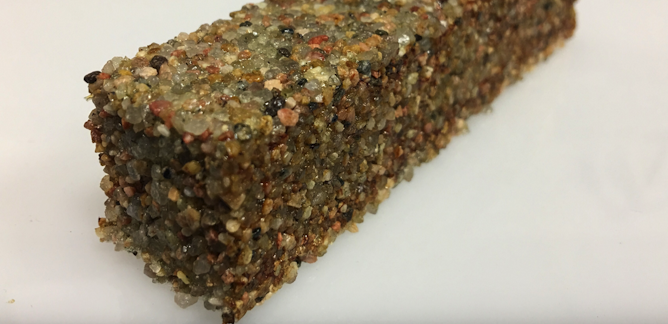
Wil Srubar, University of Colorado Boulder
Researchers are turning microbes into microscopic construction crews by altering their DNA to make them produce building materials. The work could lead to more sustainable buildings.
| |
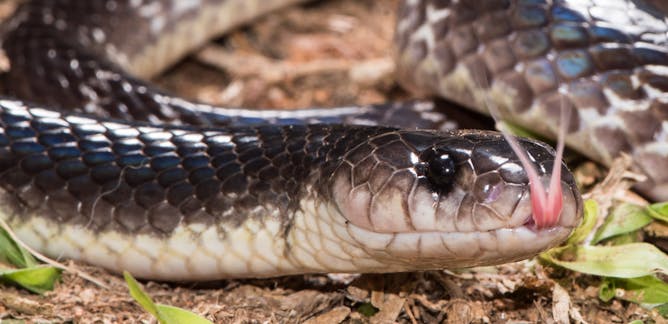
Wolfgang Wüster, Bangor University; Kevin Arbuckle, Swansea University
Relax, snakes aren't out to get you.
|
|
|
En Français
|
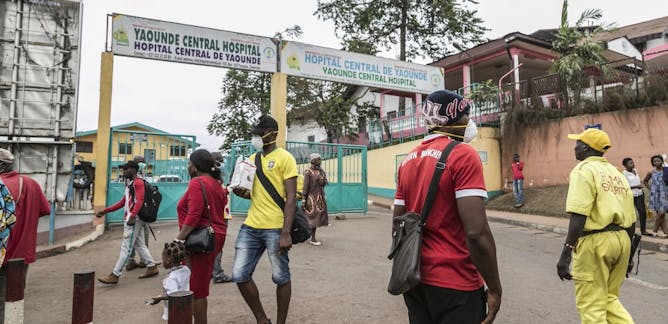
Yap Boum, Mbarara University of Science and Technology; Blaise Nguendo Yongsi, Université catholique d'Afrique centrale; Cedric Tchinda Fossi, University of Yaounde 1; Chanceline Bilounga Ndongo Fogang, University of Yaounde 1
Le système de santé camerounais sera éprouvé à l’instar des autres pays africains touchés par le Covid-19. Voici comment les autorités sanitaires tentent de faire face à l’épidémie.
| |

Ignacio López-Goñi, Universidad de Navarra
Certes, la progression de l’épidémie de coronavirus est préoccupante. Mais il faut rester optimiste. En effet, jamais l’humanité n’a été aussi bien préparée à affronter une pandémie.
|
|
|
En español
|
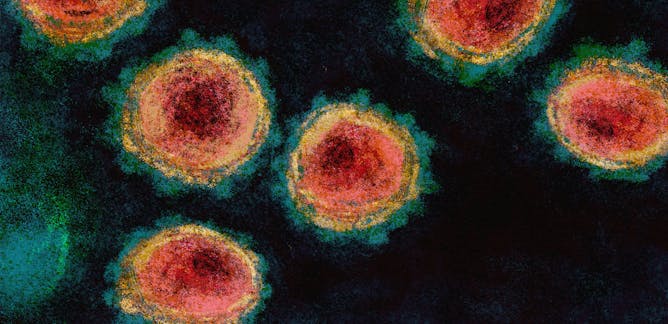
Ismael Mingarro, Universitat de València
Se conocen siete tipos de coronavirus que infectan humanos. Algunos de ellos son muy comunes y leves. Pero otros, como SARS-CoV-2, son letales.
| |

Xavier Ginesta, Universitat de Vic – Universitat Central de Catalunya
Con la expansión del coronavirus, peligran las cifras de vértigo de la industria deportiva, especialmente las del fútbol, pero se podría equilibrar la relación Occidente-Oriente en la toma de decisiones a nivel geopolítico.
|
|
|
| |
| |
| |
| |
| |
| |
|
|
|
|
|
|
|